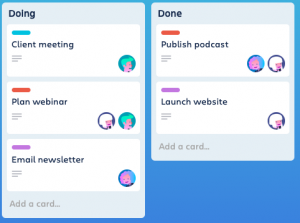PAID SEARCH 101
Paid search is extremely tricky. Any one of your competitors with a Google Adwords account can outrank you with a bit of skill (or luck). The only way to succeed – and get your business found, reliably – is to think wide, think hard, and think smart. Consider all the factors that go in to creating an Adwords campaign. Keywords, obviously, but what else? Mobile or desktop? State – or city – or even neighborhood? Day of week? Time of day?
As you add each dimension, you’re cutting up your data in to tinier and tinier pieces – down to absurd levels. Can you estimate the conversion rate of a certain keyword on a cell phone north of Midtown on a Saturday? At that granular level, there may be no available performance data – so the game becomes predictive.
I get around that by employing “data sophistication” – a complex amalgam of regularization, statistical shrinkage, and overfitting. In simpler terms, think of “machine learning” – the computer getting smarter as I feed it the data from tens of thousands of businesses across America. You may not have access to these techniques at home, but what I can do is arm you with enough knowledge to build and employ a truly killer paid search strategy that will dominate your competition. Just remember where you learned it. 😉
DEVELOPING A KEYWORD STRATEGY
Keywords are the backbone of your paid search strategy. What are people already searching for – and how can you take advantage?
Let’s say that you’re a lawyer. You load up the Google Adwords console and think to yourself, “Alright – let’s place a bid for ‘cleveland lawyer’, ‘cleveland litigation’, and ‘cleveland attorney’. You can see that these keywords are in heavy competition by your competitors, which has driven up the prices exponentially. You know that if you don’t have the highest budget in your area, your ads won’t get served. Do you pay the ridiculous rates, or give up on the idea of digital marketing?
Thankfully, there’s a third option: getting clever.
TARGETING THE JOURNEY
Big, obvious keywords are always going to be dominated by a business with a larger budget. If you’re in a space that directly competes with big chains, you can just about kiss them goodbye. My advice is to consider every stage of the discovery and purchase process of your potential client. What do I mean by that? Well, let’s pretend you’re a plumber in Cleveland, Ohio. You might bid for ‘cleveland plumber’, and you might lose. But think strategically: what’s going through a clients head when they’re searching for a plumber? Disaster has likely already struck and this is an emergency situation. You might find success appending similar keywords to the end of the tail – ‘cleveland plumber emergency’ – but you can go deeper. If they’re searching ‘cleveland plumber’, they already know that they’re in need. But what if you could be in front of them before they realized it? Keywords like ‘leaky sink’, ‘running toilet help’, ‘no hot water fix’ will put you in front of their eyeballs the moment they realize they’ll be needing your service. The best part? To accurately serve your city, Google Adwords allows you to localize with in a radius.
CASTING A WIDE NET
By now, you know that using Google Adwords as a substitute for the Yellow Pages is a waste of time. Targeting clients before, during, and after the purchase is an amazing feat – but there’s a lot more to try. Another perspective to consider is targeting each and every one of your services, every which way a potential client could conceptualize it. You might call it an “anode rod”, but your client might be searching for “rod in water heater broken”. From pipes to faucets to heating to pools, your small business might offer a wealth of services – and each one is the selling point for a potential client. The key is to put yourself in your customers shoes, and search how they search.
RIFFING ON THE COMPETITION
Want to know a secret? Check out your competitors strategy by hacking Google’s keyword planning tool. They built this tool intending for domain owners to discover how people are finding their own website – but it can just as easily be applied to your competition.
In this example, pretend you’re a dentist. Your leading competition might be using phrases like “teeth whitening scottsdale” or “emergency cavities scottsdale”. Once you’ve done this digital reconnaissance, you can make an informed decision on whether or not to bid for the same keywords and take away their traffic, or bid on analogous ones. Understanding what your competition is doing is one of the best defenses – and greatest weapons – you have in your arsenal.
WRAP UP
-Don’t target keywords based on what your service is called – target why they’d need it.
-Don’t box your targeting in – consider each of your services, and precisely which problem they’d solve.
-Keep an eye on your competition and strategize around their keywords.
When you have a well-researched, expansive list built out, you’ll be ready for step two: audience targeting.
Digital & Social Articles on Business 2 Community(36)







